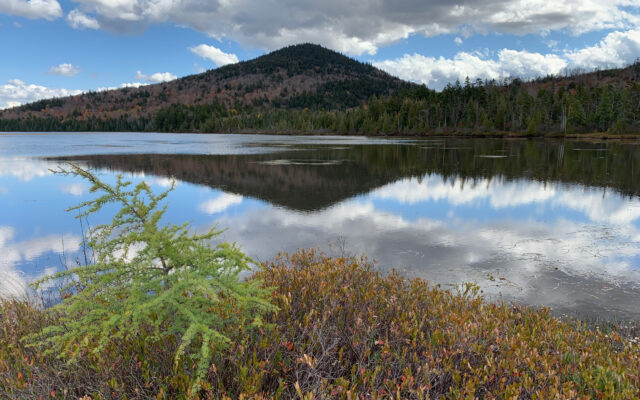
LUPC hearing, day 2: Pollution from mines is inevitable
By Kathleen Phalen Tomaseli, Houlton Pioneer Times Staff
MILLINOCKET, Maine — Metallic mineral mines can seep toxic materials from any number of natural sources, according to expert testimony during the second day of Maine Land Use Planning Commission public hearings regarding the Pickett Mountain Project.
Canadian junior mining company, Wolfden, is seeking LUPC rezoning approval for a 374-acre parcel in the unorganized territory 3.3 miles off Route 11, near Mt. Chase and Moro Plantation. Without the LUPC’s approval, Wolfden cannot apply for a metallic mineral mining permit under Maine’s new strict mining law.
The three days of public hearings, including expert testimony and public comment, will conclude on Wednesday morning at Stearns Jr./Sr. High School in Millinocket. An additional public comment period is slated for 6:30 p.m. Oct. 23 at the Cross Insurance Center, 515 Main St., Bangor.
The public hearings are part of the commission’s process to determine whether to approve Wolfden’s rezoning application. The hearing is live streamed on YouTube.
Rock formation seepage, fluctuating groundwater levels, weather, leaking mine liners can all lead to pollutants from the mine seeping into the groundwater, according to experts who spoke about these potential pollutants as they related to the proposed Pickett Mountain metallic mineral mine.
During a portion of Monday’s hearing, Wolfden’s Vice President Jeremy Ouellette talked about Wolfden’s prospective plans for toxic mitigation with double lined walls and reverse osmosis to clean dirty water.
Nonetheless, on Tuesday several experts said that while reverse osmosis is an effective tool for cleaning water, Wolfden did not present an example of a comparable mine that has used this method successfully.
Montana scientist Stu Levit said that in his 25 years in the industry including working with Superfund sites polluted by mining, he is not aware of such a mine and that it might not be possible or it might be economically impractical. It’s easy for a company to promise to do something and another to actually design and plan on something to deliver it, he said.
“The proposed ultra-filtration and reverse osmosis are actually good technologies, but they can be very expensive to operate,” Levit said. “In my opinion, the (Wolfden) mineral data is not sufficient at this time to estimate the actual costs.”
A general theme during both days of testimony was that the Wolfden application data – scientific, financial and economic – was based on models and prospective data, making it difficult to determine reality.
On Tuesday morning, LUPC hearing officer Everett Worster said that most of what the commission has heard was based on predictive models.
“My confidence level in those predictions is not real high,” he said.
On Tuesday, Intervenor No. 2 – the Houlton Band of Maliseet Indians, the Penobscot Nation, the Natural Resources Council of Maine, represented by the Conservation Law Foundation, Earthjustice and Brann & Isaacson, testified regarding their opposition to the rezoning application because of the potential damage to Wabanki lands and waters and the region’s natural resources.
Colorado geochemist Ann Maest, vice president of Buka Environmental, said that the majority of hardrock mines she evaluated missed water quality predictions the majority of the time and 64 percent failed with mitigation efforts.
“Mining will cause pollution,” she said.
Out of 19 speakers on Tuesday evening, 11 urged the LUPC to deny Wolfden’s rezoning request citing degradation of natural resources, not enough evidence that Wolfden has the ability to operate the mine safely, enough jobs in the community with many businesses already unable to get the help they need, and tourism growing as the region’s new economy.
Molly Hanson, of Millinocket, said she is very concerned about the mine and feels there are a lot of “ifs”: if they follow the rules, if they stay safe.
“I don’t think there’s enough evidence to prove that Wolfden can actually do what they say they can do. They don’t have a track record,” she said. “They are talking a good talk but I don’t think the Penobscot area is where this should be tested.”
Among reasons given by those in favor of rezoning the land for the Wolfden mine, jobs topped the list.
Shin Pond Village co-owner Terry Hill said that people from away can come to Maine and talk about wanting a pristine area, but they are not raising their families here, not paying bills, and this is really important to those who plan to stay here.
“This project, in my whole family’s opinion, fits our region. We need to have industry along with tourism,” she said. “We support this project.”
Nonetheless, Millinocket resident Len Warren, who retired from The Nature Conservancy, said zinc mining is an inherently destructive industry.
“I have never seen good examples of a mine that could produce clean water results,” he said.